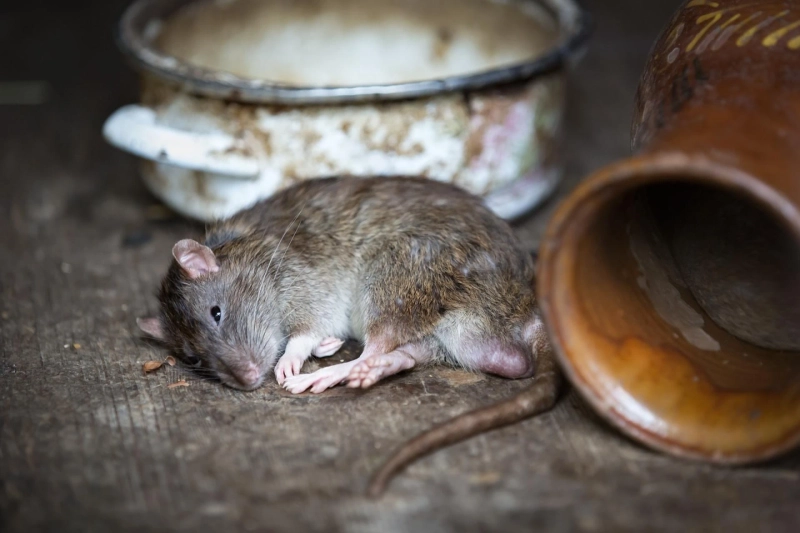Having a rodent-free living environment is essential for the health, safety, and peace of mind of homeowners. Among the various types of pests, rats pose a significant threat due to their ability to cause extensive damage and transmit diseases. Rat control plays a crucial role in maintaining a clean, hygienic, and comfortable living space.
Rats are known for their remarkable adaptability, intelligence, and rapid reproduction rate, making them a persistent problem once they infest a property. These rodents can cause significant damage to structures, electrical wiring, insulation, and personal belongings. Additionally, rats carry various diseases, including salmonella, leptospirosis, and hantavirus, which can pose serious health risks to humans and pets.
Controlling rat infestations is not only about eliminating the immediate threat but also preventing future infestations. Rats can enter homes through small openings, cracks, and gaps, making it crucial to identify and seal potential entry points to prevent their entry. Taking proactive measures to control rats helps to safeguard the integrity of your property, prevent property damage, and reduce the risk of health hazards.
In the following sections, we will delve deeper into the identification of rat infestations, prevention methods, DIY solutions, and the benefits of professional rat and mice control services. By understanding the importance of rat control and adopting appropriate measures, homeowners can create a safe and harmonious living space free from the threats posed by these destructive rodents.
Tips for Rat Control
When dealing with a rat infestation, prompt action is essential to ensure effective control and prevent further damage. Here are some helpful tips for rat control that can assist in managing the problem:
Identify and Seal Entry Points: Conduct a thorough inspection of your property to identify any potential entry points rats can use to gain access. Seal cracks, gaps, and openings in walls, floors, and foundations using materials like steel wool or caulk.
Keep Food and Trash Secure: Rats are attracted to food sources, so ensure that all food items are stored in airtight containers. Regularly clean up spills and crumbs, and secure trash bins with tight-fitting lids.
Remove Clutter and Debris: Rats seek shelter in cluttered areas, so declutter your living space and remove any debris or unused items that can provide hiding places. This is one of the effective ways of controlling rats.
Use Rat Traps: Set up rat control traps in areas where rat activity is observed, such as near walls, in attics, or under sinks. Choose the appropriate type of trap, whether snap traps, electronic traps, or glue traps, and position them strategically.
Employ Bait Stations: Bait stations can be effective in controlling rats. Place them along walls or in areas where rats are likely to travel. Use bait stations specifically designed for rats and follow the instructions carefully.
Practice Good Hygiene: Maintain a clean and hygienic environment by regularly sweeping, mopping, and vacuuming. Pay attention to areas where food is prepared or stored, as well as pet feeding areas.
Consider Natural Deterrents: Some natural repellents, such as peppermint oil, ammonia, or mothballs, may help deter rats. Place these deterrents near entry points or areas of rat activity.
Natural deterrents can be a useful addition to your rat control strategies. While they may not guarantee complete eradication of rats, they can help deter them from entering your property or certain areas. Here are some natural repellents commonly used for rat control:
1. Peppermint Oil: Rats have a strong aversion to the smell of peppermint oil. Soaking cotton balls in peppermint oil and placing them near entry points or areas of rat activity can help repel rats. Refresh the cotton balls with oil regularly to maintain the scent.
2. Ammonia: Ammonia has a strong odor that rats find unpleasant. Mixing equal parts of water and household ammonia and spraying it around rat-prone areas or near their entry points can deter them. Take caution while using ammonia, as it can be harmful if ingested or inhaled by humans or pets.
3. Mothballs: Mothballs contain a chemical called naphthalene, which has a repelling effect on rats. Place mothballs in areas where rats are active or near their entry points. However, be cautious when using mothballs, as they can be toxic if ingested by humans or pets. Ensure they are kept out of reach of children and animals.
Consult Professional Rat Control Services: If the rat infestation persists or becomes overwhelming, it is advisable to seek professional rat control services. Pest control experts have the expertise, knowledge, and access to specialized tools and techniques to effectively eliminate rats from your property.
By following these tips for rat and mice control, you can take proactive measures to manage rat infestations and create a rodent-free living environment. Remember to look for local ‘rat pest control services near me’ for expert advice and assistance in dealing with severe or persistent rat problems.
Final Words
In conclusion, ensuring a rodent-free living environment is crucial for the well-being and safety of homeowners. Rat control is an essential aspect of maintaining a clean, hygienic, and comfortable home. By implementing the tips and strategies discussed in this guide, such as identifying and sealing entry points, securing food and trash, using rat control traps and bait stations, practicing good hygiene, considering natural deterrents, and seeking professional rat control services when necessary, homeowners can effectively manage rat infestations and prevent future occurrences. Taking proactive measures to control rats not only protects your property from damage but also reduces the risk of diseases and health hazards associated with these rodents. Remember, rat control is an ongoing process, and it requires consistent effort and vigilance to ensure a rodent-free living environment. By adopting these effective solutions, homeowners can enjoy a peaceful and pest-free home.


